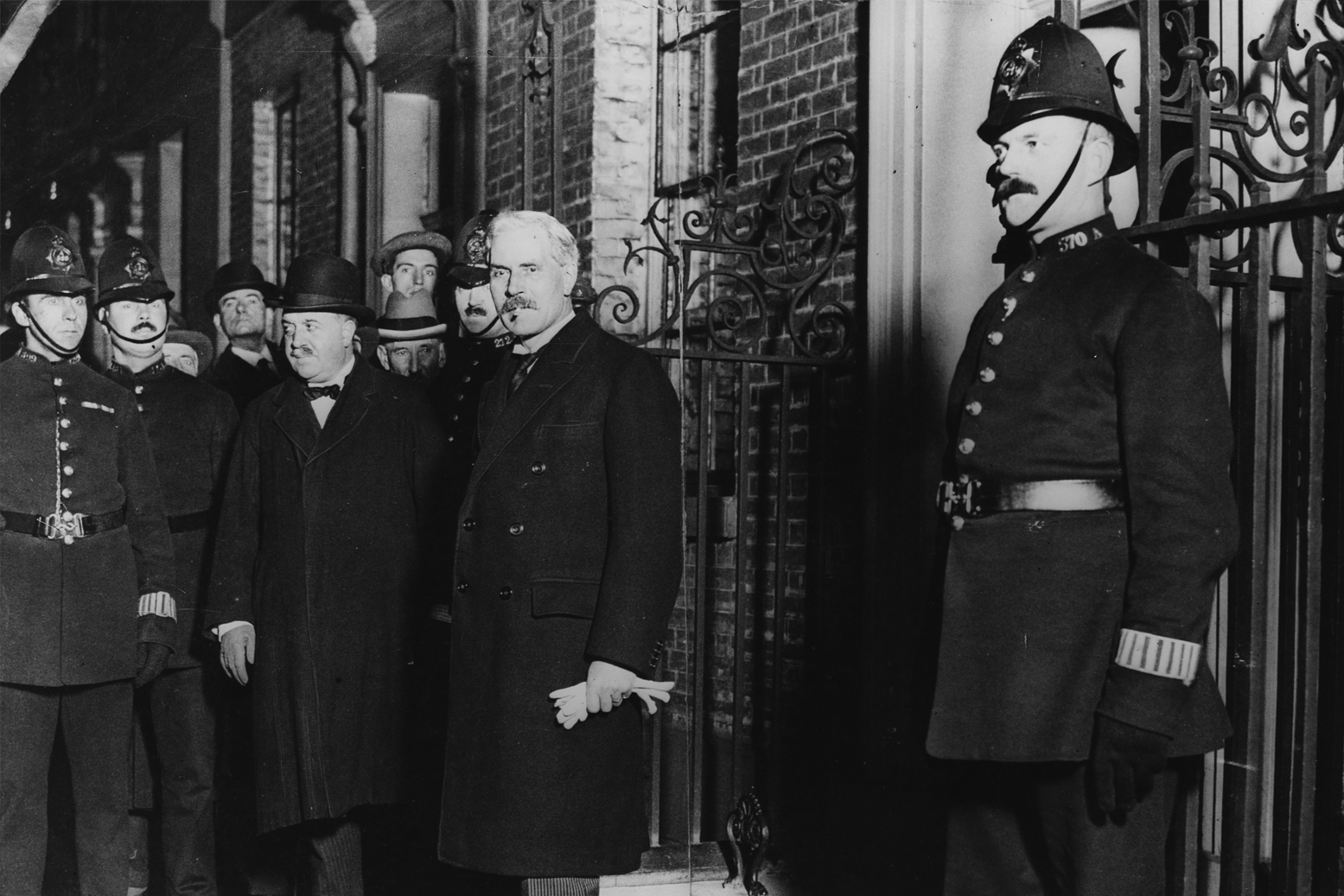By New Statesman
Copyright newstatesman

In 1931, the Labour prime minister Ramsay MacDonald provoked a civil war in the party due to the severity of his proposed spending cuts as the Great Depression unfolded. On 24 August, MacDonald and his chancellor, Philip Snowden, formed a National Government with the Conservatives and some Liberals – swiftly judged “a mistake” in an NS editorial. They were expelled from the Labour Party.
In many respects the situation which confronted the Cabinet was like that of August, 1914. Then as now the crisis sprang from a distant event in Austria which soon involved this country; then as now members of the Cabinet were confronted with a demand to carry out a policy which contradicted the whole of their political philosophy, which made nonsense of all they had said and worked for. Then as now there were members who said: “Well, if that policy is to be carried out it must be carried out by others, not by me.” Then it was a decision to fight the Germans: today it is a decision to abandon the whole movement towards socialism because of a threat to the stability of our currency. In 1914 Mr. MacDonald refused to join a War Cabinet: Mr. Henderson accepted. Mr. MacDonald was denounced as a traitor: Mr. Henderson applauded. In leading articles in the Times, for instance, Mr. MacDonald’s patriotism is extolled, while Mr. Henderson is denounced as a man who put party before country. Meanwhile, in Labour circles all over the country Mr. MacDonald is being denounced – against Mr. Henderson’s expressed wish – for betraying his party. Neither denunciation of Mr. MacDonald nor of Mr. Henderson is just.
Mr. MacDonald’s decision to form a Cabinet in conjunction with the Liberals and Tories seems to us a mistake, just as it would have been a mistake for him as a pacifist to join a War Cabinet in 1914. For he must inevitably find himself at war with the whole of organised labour, and not only with organised labour, but with all those, in all classes, who believe that the policy of reducing the purchasing power of the consumer to meet a situation of over-production is silly economics. Few people yet realise how extreme and drastic the cuts in the standard of life of all but the bondholder and of certain industrialists must be if the policy of deflation is to have even an apparent success. An effort is being made to represent the issue as merely one of a 10 per cent reduction in the dole, as if patriotism meant cutting the dole and refusal to cut it could only be based on a cowardly subservience to the electorate. Actually, the reduction in the dole is in itself comparatively unimportant. Mr. MacDonald is quite right in saying that a 10 per cent reduction, in view of the change in prices, is not so terrible a measure. We oppose it and have always argued against it in these columns, because it is only a first step, the crucial beginning of a policy of reductions, disastrous, we believe, alike for England and the rest of the world. And if Labour is to carry out a capitalist policy because there is a danger of a flight from the pound – probably exaggerated as we argue elsewhere – how can any socialist policy ever be carried out in any circumstances? That threat has always been used and will again be used with far more effect on every occasion that we wish to extend the social services or continue the process of redistributing wealth from the rich to the poor. Such redistribution does, of course, by its very nature mean a loss of “confidence” among investors: Socialism does mean a threat to the capitalist system. That is its definition.
On the personal side we may respect Mr MacDonald’s position. He has nothing to make out of it: he goes and goes consciously away from his party. He must find himself out of sympathy with the majority of his colleagues in the new Cabinet, and he will not find it easy to dissociate himself from their views on many subjects. Mr. Thomas has always been a Conservative at heart; he believes in tariffs and naturally consorts with big business. His presence in a Socialist Cabinet has long been a subject of jest. As for Mr. Snowden, he is a Liberal, and his views differ not much, if at all, from those of Sir Herbert Samuel. He and the Liberals, armed with a guarantor against a tariff, feel secure at the moment. But they are soon likely to find themselves in a very awkward corner. The Tories will easily cooperate in doing the unpopular, dirty work – in cutting the dole, forcing down wages and cutting education and the social services. In doing so they will probably increase unemployment, and the various remedies for unemployment must speedily come up for discussion. The Tory remedy is tariffs, and in the depth of depression to which the policy of deflation will soon have reduced the country, a very popular policy it will be. The Liberal cure for unemployment has been an extension of public works, a policy of spending, and that they have now renounced. An excellent tactical position for the Tories! To have used the name and prestige of Mr. MacDonald and the Liberals for the unpopular task of cutting, and then to be able to offer tariffs to restore business. But where will the Liberals be and where Mr. MacDonald?
When the events which brought this new Government into existence are fully known, we shall find that party politics played a larger part than has yet been revealed in the press. It is too soon to tell the whole story, but there are several facts which we may tell and which illustrate, well enough, the manoeuvres which were designed to split and discredit the Labour Party. On Friday the Cabinet had completed its task of finding ways of balancing the Budget. “Cuts,” involving large sacrifices from the unemployed, but not an actual cut in standard benefit, accounted for £56,000,000. The remainder was to be met by taxation. These proposals were submitted to the bankers. They replied that they were insufficient, if the necessary credits were to be obtained from America. Another £25,000,000 or £30,000,000 must be raised, the bulk of which must come: from the dole. Cabinet was then asked to accept a 10 per cent reduction of unemployment insurance in spite of a pledge given to the Trade Unions and to the Labour Party that they would not cut the dole itself. Since the position of the pound was now represented as extremely urgent, many members of the Cabinet were prepared to go as far as this. The Tories were asked whether they would be satisfied, and the Government was informed that if this were submitted to the House of Commons they would not oppose it on second reading but would reserve for themselves the right of moving amendments, if necessary, to increase the “cut,” in Committee. Here, indeed, would have been a fine situation for the Labour Party! To have accepted it would have been to be out manoeuvred, discredited and ridiculed. They would, in any case, have had the utmost difficulty; even as a united Cabinet, in persuading their followers to accept a 10 per cent cut as a final reduction, only then to find themselves saddled with the responsibility for a cut which would have proved in Committee not final at all! The Tories played their cards well; the Labour Party may be grateful to Mr. Henderson for saving it from disruption and discredit.
[Further reading: From the archive: A state of boredom]



